Employment-Based Immigration

Chicago Employment Immigration Lawyer
Expert Assistance for Your Work Visa Application
Joining the American workforce provides fantastic prospects for skilled and determined people from other countries, but it's not always a straightforward path. If all necessary forms, papers, and fees aren't submitted promptly, your American dream can end before it begins.
Successfully applying for a work visa is still quite complicated and requires significant proactive planning. However, depending on your skill level and profession, the process can be significantly simplified with the help of Chicago employment-based immigration lawyers. When considering applying for a work visa, you will need to prepare a labor certification and petition. Your prospective employer will first need to complete the labor application and certification, and only then will you be able to file your “Immigrant Petition for Alien Worker” form.
Ready to start your immigration journey? Contact our Chicago employment-based immigration attorney at Ray Law International today at (888) 474-8048.
Why Consult a Chicago Immigration Lawyer for Your Employment Visa?
Every area of immigration law is complex and full of pitfalls that can upend an applicant’s chances of staying in the U.S. The employment visa application process is no exception. For that reason alone, anyone applying for a work visa should speak with an experienced Chicago employment-based immigration attorney first. Immigration lawyers handle issues such as the work visa application process daily.
They understand the steps that applicants need to take to have their work visa approved, because in many cases, they have been successfully guiding people through the employment visa application process for years. This does not mean that if an applicant has an immigration attorney on their side, their employment visa is guaranteed to be approved. It just means that trusting a legal professional to help is often the best chance an applicant has for approval.
Temporary Vs. Permanent Visas
An employment visa, also known as a work visa, allows immigrants to move to the U.S. for a job if they have the necessary work experience, education, or skills.
Employment-based immigration is divided into two categories:
- Temporary (nonimmigrant visa): This includes people who want to live and work in the U.S. for a limited time.
- Permanent (immigrant visa): This option is for people who want to permanently stay and work in the U.S.
Generally, permanent employment visas are only granted to 140,000 people a year (this includes employees and their spouses and kids).
Read Our Employment-Based Immigration FAQ
What are the Different Types of U.S. Work Visas?
Skilled individuals wishing to work in the United States can apply for employment-based green cards, which are made available each year in limited quantities. If a worker is granted a work visa, he or she will be able to enter the United States to accept an offer of employment. Spouses and children of permanent immigrant workers may also apply for admission to the U.S.
The five types of employment-based visas offered in the U.S. include:
EB-1 (First Preference)
First preference EB-1 visas are available to individuals with “extraordinary ability,” such as scientists, researchers, academics, business professionals, and athletes. A certification by the U.S. Department of Labor is not required for this type of visa.
EB-2 (Second Preference)
Second preference EB-2 visas are open to professionals with either an advanced degree, at least 10 years of experience in a valuable field, or whose employment is of national interest to the United States. Labor certification is required for all but the latter category.
EB-3 (Third Preference)
Third preference EB-3 visas are available to individuals with a Bachelor’s degree (or foreign equivalent), in addition to skilled and unskilled workers who have received a non-temporary job offer from an employer in the United States. Labor certification is required for all applicants.
EB-4 (Fourth Preference)
Fourth preference EB-4 visas are open to a wide range of candidates, including retired employees of international organizations, employees of United States foreign service posts, certain religious workers, and non-citizen minors who are wards of U.S. courts. Labor certification is waived for EB-4 visas.
EB-5 (Fifth Preference)
Finally, fifth preference EB-5 visas are available to foreign individuals who participate in the Immigrant Investment Program. This program allows individuals to quickly obtain residence in the U.S. in return for a qualifying investment in new commercial enterprises that provide jobs to U.S. workers. Labor certification is waived for EB-5 visas.
Once the preliminary documents have been filed, you will determine which preference category you will fall under (E1-E5). The application process for each category will be varied. The most efficient strategy at this stage in your immigration journey is to enlist the help of Ray Law International and allow our work visa attorneys in Chicago to guide you to the category that best fits your situation.
Work Visa Applications
We assist businesses and individuals with obtaining a range of nonimmigrant work visas, including:
- H-1B Visa: For specialty occupations requiring advanced education or expertise.
- H-2B Visa: For non-agricultural seasonal workers.
- TN Visa: For professionals from Canada and Mexico under NAFTA/USMCA agreements.
- L-1 Visa: For intracompany transferees working in managerial or executive roles.
- O-1 Visa: For individuals with extraordinary ability in sciences, arts, education, business, or athletics.
- E-2 Visa: For investors and entrepreneurs from treaty countries.
- Cap-Exempt H-1B Visas: For nonprofits, academic institutions, and research organizations, we provide tailored guidance on cap-exempt H-1B visa petitions, ensuring smooth application processes.
- National Interest Waiver (NIW): This self-petition option allows professionals to bypass the labor certification process if their work is of substantial benefit to the U.S., such as in STEM fields, public health, or national security.
- NIW B-2 Visa: A unique pathway for individuals seeking to combine temporary stay under a B-2 visa with work that supports a national interest waiver application.
- OPT and STEM OPT Extensions: For recent graduates from U.S. institutions to work and gain experience in their field of study.
If you are looking for help with your work visa, don't hesitate to reach out to our employment-based immigration attorney in Chicago today.

How To Apply For an Employment Visa in the U.S.
The employment visa application process is more complicated than many people realize. Not only must applicants complete several steps to get a work visa, but at each stage of the process, they could face challenges that could potentially ruin their chances of getting approved for a visa.
The steps of the employment visa application process are:
- Obtain a labor certification (if necessary)
- File an Immigrant Petition for Alien Worker form (Form I-140)
- If the petition is approved, it will be forwarded to the National Visa Center (NVC). In addition, if the petition is approved, an applicant’s spouse and unmarried children under 21 may be able to apply for visas with them.
- Applicants will need to fill out Form DS-261, pay application fees, and submit requested documents to the NVC.
- Once the application forms are completed, fees paid, and documents submitted, applicants will undergo an interview, receive necessary vaccinations, and submit to a medical examination.
The steps listed above are a simplified version of the employment visa application process. For a more detailed description of the stages of the work visa application process, you should discuss your situation with our experienced Chicago work visa attorneys.
What is Labor Certification?
In some cases, a person must have received a job offer from a U.S. employer to qualify for a permanent employment visa. In this scenario, the employer will act as the person’s sponsor. Sponsors must submit immigration petitions to United States Citizenship and Immigration Services (USCIS). However, prior to being able to submit a petition to USCIS, employers must apply for and receive a labor certification from the U.S. Department of Labor.
Labor certification approval requires the employer to prove:
- There are not enough qualified and willing U.S. workers available to fill the job being offered, and the job offers a competitive wage for the area (usually the union wage).
- Bringing in someone from outside the U.S. to fill the job opening will not negatively impact the wages or working conditions of U.S. workers employed in similar positions.
Both EB-2 and EB-3 require labor certification.
Employment-Based Immigration and Family Sponsorship
Many employment immigration pathways allow your family to join you in the U.S., ensuring a seamless transition for everyone:
- Dependent Visas: Options like H-4, L-2, and O-3 visas allow your spouse and children to accompany you.
- Green Cards for Family: Spouses and children under 21 can be included in employment-based green card applications.
- Work and Study Benefits: Spouses may qualify for work authorization, and children can attend U.S. schools.
We ensure your family’s immigration journey is as smooth and successful as your own.
Family Immigration Benefits for Employment-Based Visa Holders
Dependent Visas for Spouses and Children
Most employment-based visa categories offer family immigration options for your immediate family:
- H-4 Visas (Dependents of H-1B Holders): Spouses and children under 21 can accompany H-1B visa holders to the U.S. Spouses may also be eligible for work authorization under certain conditions.
- L-2 Visas (Dependents of L-1 Holders): Spouses and children under 21 of L-1 visa holders can live in the U.S. L-2 spouses can also work upon obtaining an Employment Authorization Document (EAD).
- O-3 Visas (Dependents of O-1 Holders): Spouses and children of O-1 visa holders can join them in the U.S., though work authorization is not granted for O-3 holders.
Green Card Sponsorship for Family Members
When applying for permanent residency through an employment-based green card (e.g., EB-1, EB-2, or EB-3), your spouse and unmarried children under 21 can also qualify for green cards as derivatives of your application.
Work and Study Opportunities for Family Members
- Spouses of H-1B and L-1 visa holders may be eligible for work authorization, allowing them to pursue their own careers.
- Dependent children can attend school in the U.S., from elementary to higher education, without needing a separate student visa.
Contact Our Employment Immigration Attorney in Chicago Today
At Ray Law International, we are committed to providing unparalleled expertise and personalized guidance to individuals and businesses seeking to secure employment-based visas and green cards. Whether you are an employer looking to sponsor a foreign worker or an individual seeking employment-based immigration solutions, we are here to help. Contact us today to schedule a consultation and take the first step toward reaching your immigration goals. We understand your journey's significance and are dedicated to helping you navigate the intricate path to success.
For assistance with your case, contact us online or call (888) 474-8048to speak with our Chicago employment-based immigration lawyer.


-
“He shed light on some questions that I had no idea how to even go about asking.” - Bahlinga
-
“Ray Law Office is a winning team” - A Satisfied Client
-
“Anthony does not just ask questions, but really provide analysis and potential best solution.” - Qian

Contact Us Today
The attorneys at Ray Law International are committed to providing clients in the United States and abroad with effective, innovative immigration solutions. We find fulfillment in advocating for our clients by helping them understand the immigration process and reach their goals. We offer services in English, Spanish, and Japanese.


